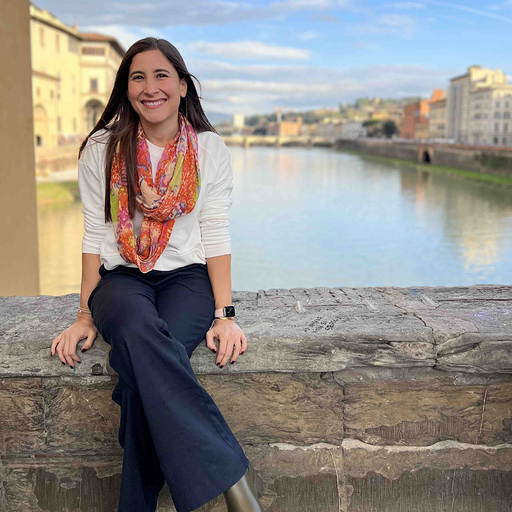The Best Decibel Meter Apps for Protecting Your Hearing Health
Discover the top decibel meter apps that transform your smartphone into a professional sound level meter and safeguard your hearing. Click here for more!


Everyday scenarios like attending concerts, live sporting events, or working in noisy environments can expose our hearing to noise levels that, in the moment, seem harmless. However, over time, these seemingly harmless sounds can cause permanent hearing damage.
That's where decibel meter apps come in. They can effectively transform your smartphone device into a professional-grade sound level meter, tracking and identifying hazardous environmental noises, allowing you to proactively take measures to protect your hearing and enjoy life without the looming threat of hearing impairment.
What is a Decibel Meter App?
A decibel meter, also known as a sound level meter or SPL meter (sound pressure level), is a device that measures noise levels and displays the sound's intensity in decibels (dB).
Nowadays, this technology is readily accessible as a downloadable app from your smartphone, using the device's built-in microphone. This technology is a practical and user-friendly tool for raising awareness of sound levels in your environment and taking appropriate measures to safeguard your hearing health.
How Decibel Meters Work
Decibel meters capture sound waves through a microphone and process them to calculate their intensity. Most decibel meter apps use the microphone on your smartphone and apply advanced algorithms to estimate the sound pressure level (SPL). While not as precise as professional-grade equipment, many apps are calibrated to deliver fairly accurate readings.
Benefits of Decibel Meter Apps
- Prevent hearing damage by identifying harmful noise levels.
- Useful for musicians, event planners, and workplaces with high noise levels.
- Monitor and manage your sound environment effectively.
How Loud is Too Loud for Your Hearing Health?

The loudness level considered "too loud" for your hearing health can vary depending on several factors, including the duration of exposure and individual sensitivity to sound.
Here's a breakdown of how loud is too loud for your hearing health:
Decibel Chart
Noise-induced hearing damage is cumulative, meaning that the more time you expose your ears to noisy environments, the greater the risk to your hearing. To protect your hearing, consider using a decibel meter to detect loud settings and use hearing protection, such as earplugs or earmuffs.
Take a look at the best decibel meter apps.
The Best Decibel Meter Apps for Protecting Your Hearing Health
01.Decibel X
iOS rating: 4.6 stars, free, offers in-app purchases
Google Play rating: 3.6 stars, free, in-app purchases

With over 118K reviews, this decibel meter is a popular choice. The app turns your mobile device into a professional sound level meter, detects harmful environmental noises, and helps protect your hearing.
Known as a highly reliable and accurate sound level meter, this extremely useful tool integrates directly with the Health app, allows you to record data, and is easy to use thanks to its intuitive interface and seamless UI design. Plus, the free version is highly recommended.
02.Decibel Pro
iOS rating: 4.7 stars, free, offers in-app purchases

The free decibel meter app measures environmental noise levels using an actual Nor140 high-precision decibel meter and allows you to save your measurements and their locations and share them with others. You can also take a hearing test and export measured noise levels and audiograms with the Health app integration.
Its also used to calibrate home or concert venue equipment, controlling volume output with the best accuracy. Plus, other great features like creating photos and videos with overlaying noise levels.
03.NIOSH Sound Level Meter
iOS rating: 4.7 stars, free

Created and maintained by the National Institute for Occupational Safety and Health (NIOSH), this award-winning app was developed by experienced acoustic engineers and hearing loss experts.
The app provides up-to-date information and guidelines for preventing hearing loss. It fosters awareness of the acoustic environment to make informed hearing health and protection choices. Furthermore, it collects noise exposure data, enhancing our understanding of occupational sound levels and their potential impacts.
The app has highly positive reviews and is convenient and easy to use.
04.Too Noisy Pro
iOS: 3.9 stars, $7.99
Google Play rating: 3.7 stars, $7.99

The Too Noisy app is an effective and playful solution to assist teachers in keeping control of general noise levels in a classroom using a visual stimulus.
Teachers can use the Too Noisy app to monitor the classroom's noise levels, adjusting noise sensitivity levels, with a simple interface designed so children will respond to it, graphically displaying noise levels in a fun and engaging way. Additionally, it can be used as a learning tool to help children understand the different sounds and noise levels in their environment by conducting volume experiments.
05.dB Meter - Decibel Sound Level Meter

iOS: 4.6 out of 5 stars
Google Play: 4.3 out of 5 stars
The dB Meter app is a highly rated tool designed for measuring environmental noise with precision and ease. The app provides real-time decibel (dB) readings with high accuracy. It displays minimum, maximum, and average dB levels, allowing users to understand sound intensity over time.
Free with optional in-app purchases
Conclusion
With the constant exposure to sounds in our daily lives, staying informed and utilizing tools like decibel meter apps is not just a matter of convenience; it's a crucial step towards preventing potential hearing damage.
Decibel meter apps are a powerful ally in preserving our hearing health. These innovative applications empower us to heighten our awareness and assume control over our auditory well-being.
These apps provide real-time feedback on our sound environment, helping us identify situations that might harm our hearing, make informed decisions about when to use hearing protection, reduce our exposure, or advocate for changes in our surroundings to minimize noise pollution.














